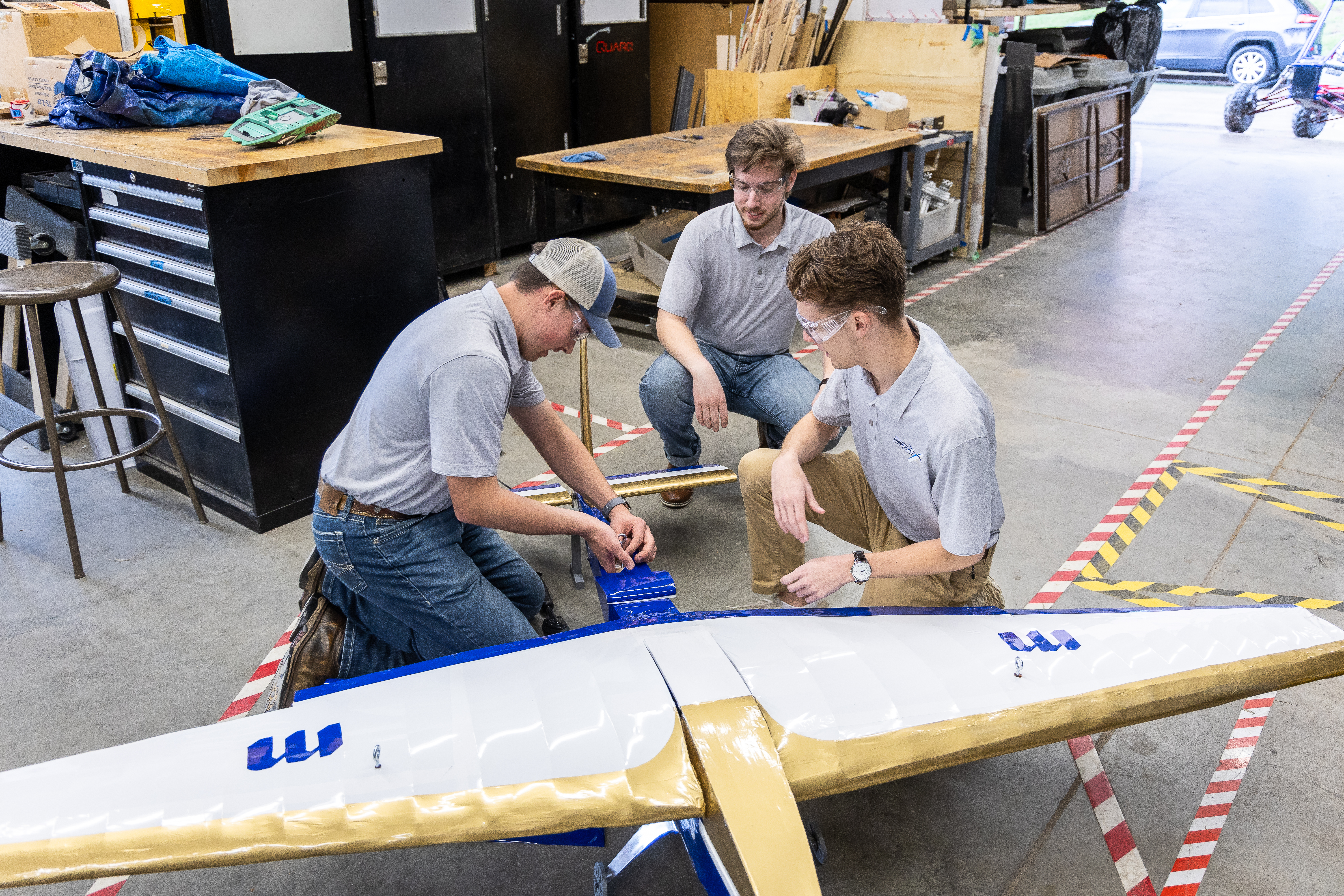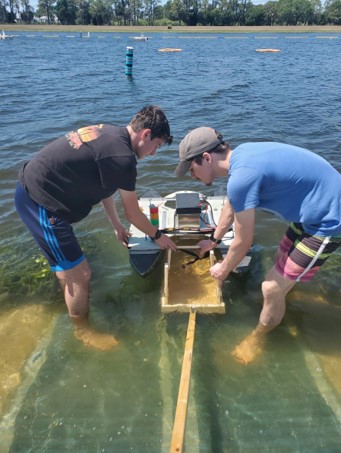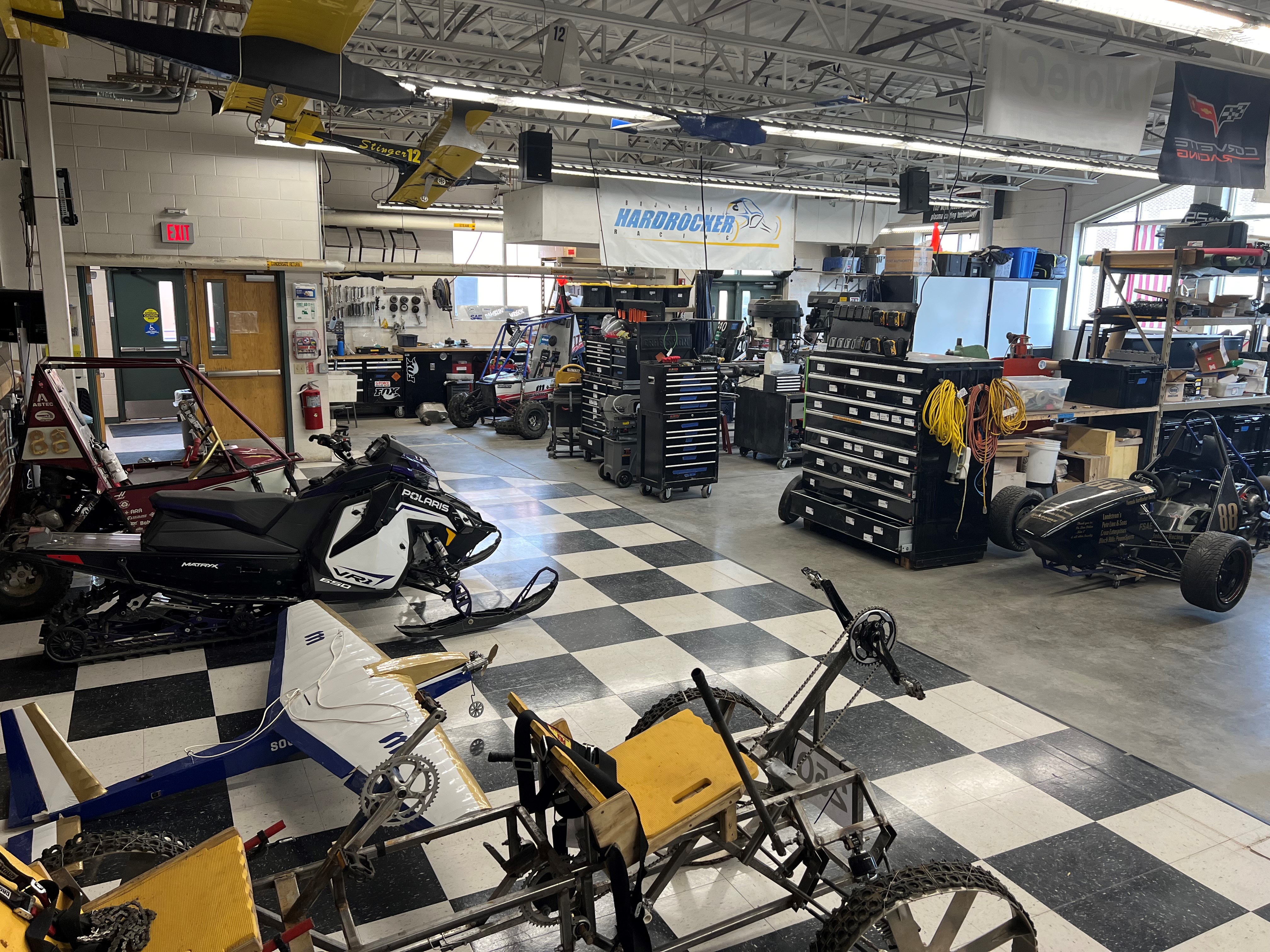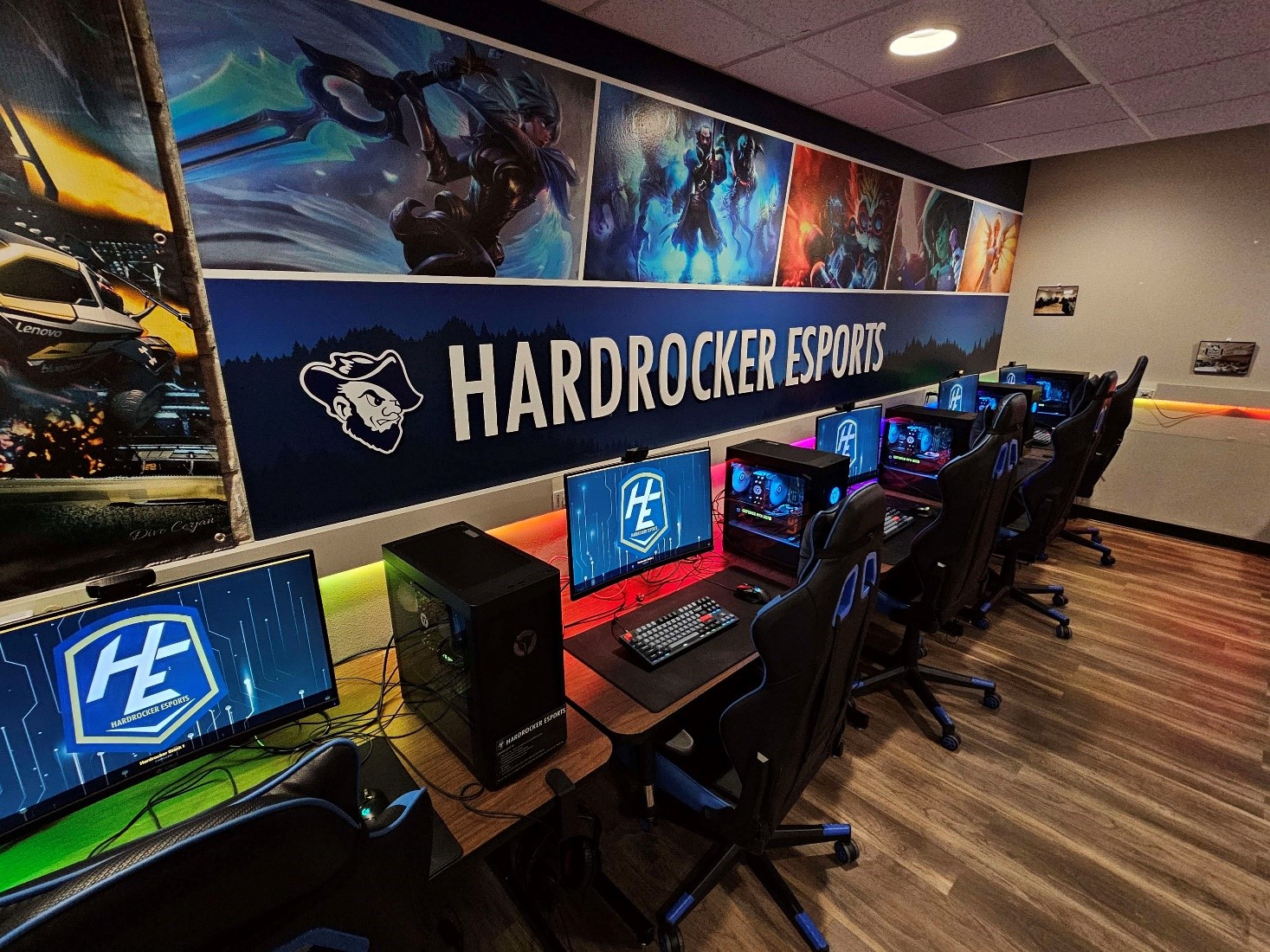CAMP

CAMP is a competitive, nationally recognized program that brings together students,
faculty, and industry leaders to partner on real-world projects. Students participating
in CAMP can be part of a team preparing for a wide range of national collegiate competitions
ranging from robotics to rockets to race cars. CAMP is open to any South Dakota Mines
student, any year, any discipline. No prior experience is necessary; just a desire
to learn something new. The point of CAMP is to experience how different skill sets
and viewpoints work together to achieve meaningful results.
CAMP Mission
Through participation on competition teams, the mission of CAMP is to develop well-rounded scientists and engineers that are prepared and eager to make meaningful contributions to society.
CAMP Vision
CAMP seeks to challenge students to become effective communicators and collaborators with a deepened capacity for self-reflection, empathy, and creative problem-solving.
Teams
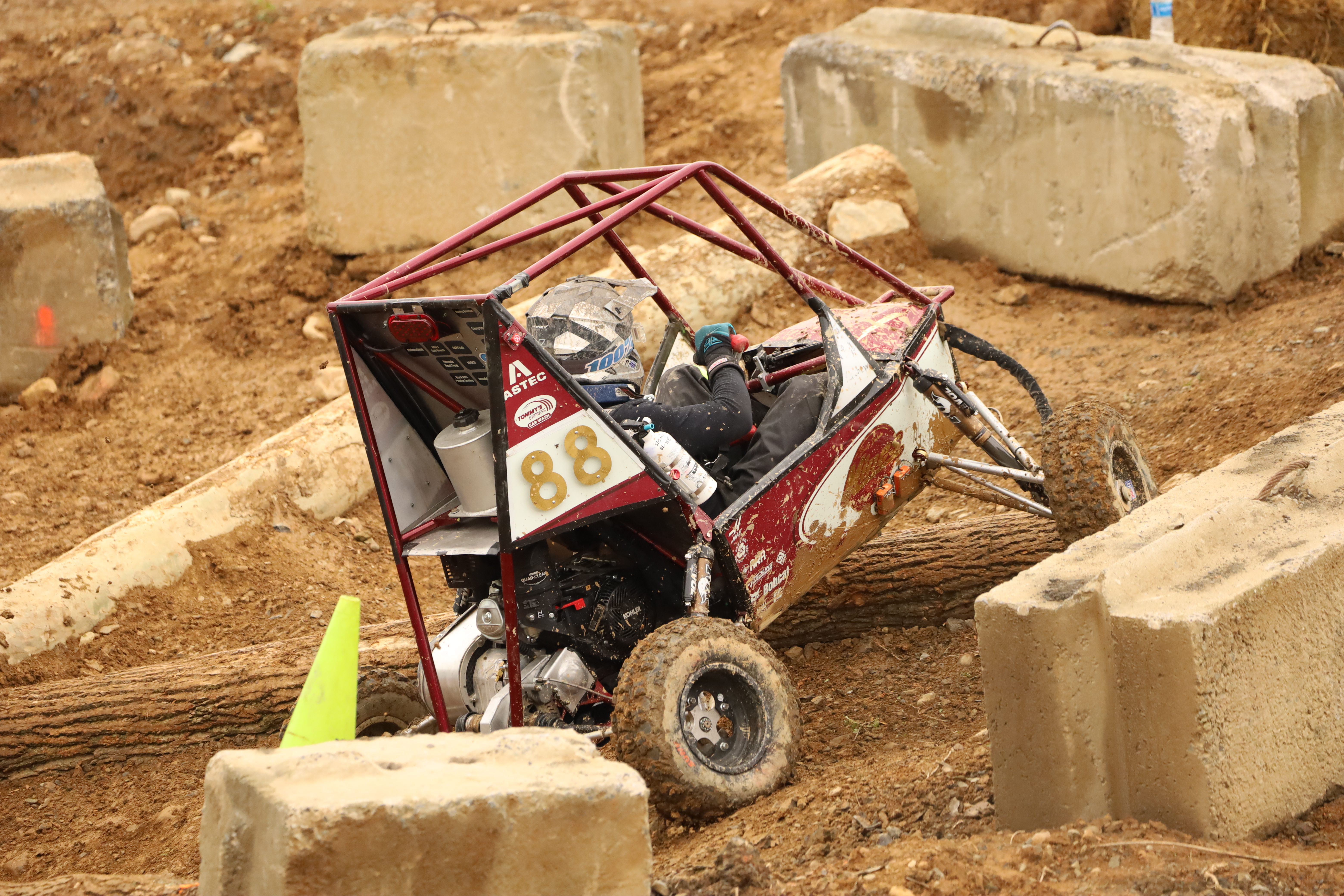
The Baja team constructs a mini baja buggy. Teams compete on multiple aspects, both dynamic and static tests. Static events include a cost report and cost reduction report submitted before the competition, a business presentation, and design presentations. Dynamic events include acceleration, maneuverability, hill climb, and suspension. These events push the car to its limits and challenge the drivers!
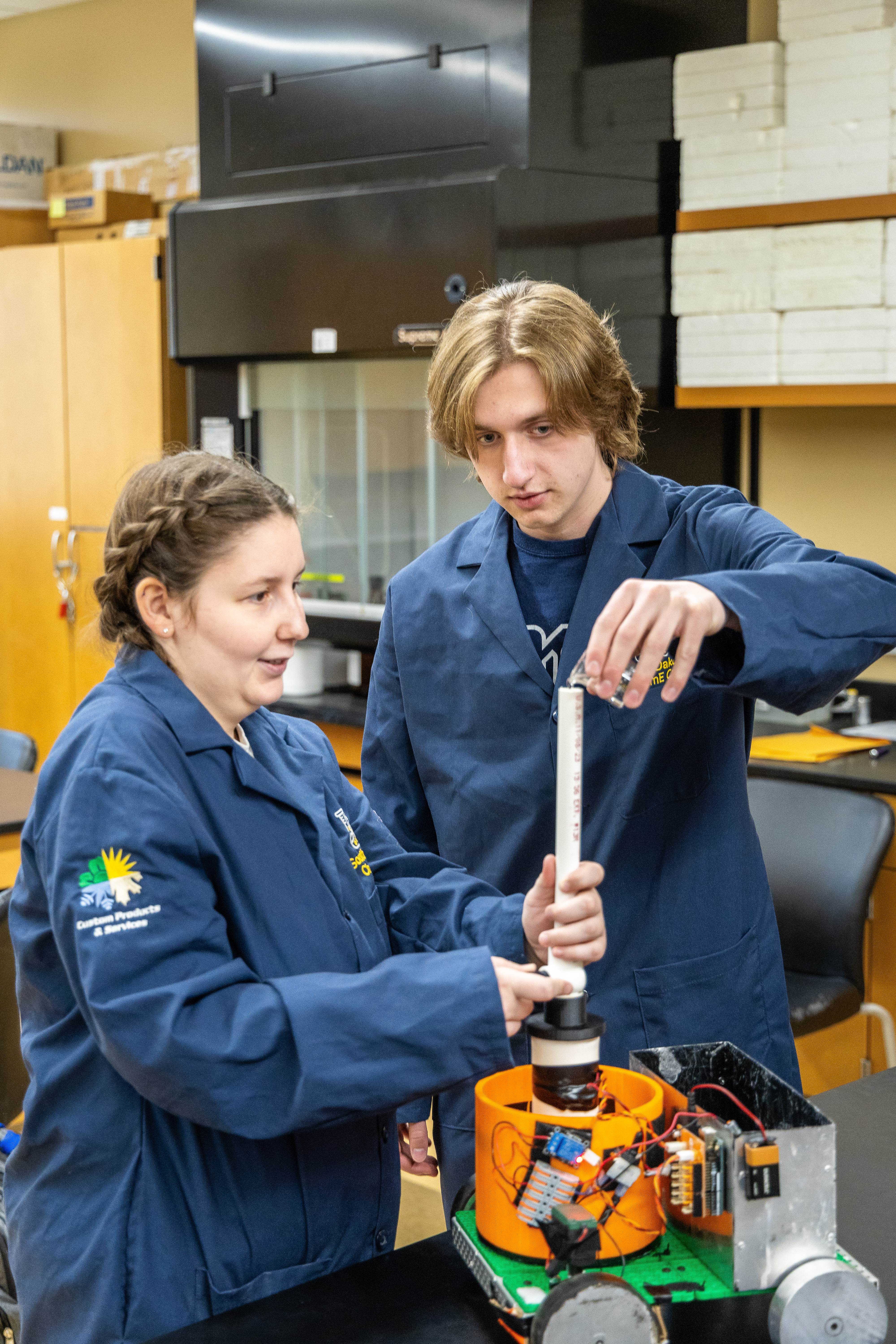
The ChemE Car team is challenged every year to design a new shoe-box-sized vehicle that starts and stops based on a chemical reaction. When they arrive at the competition, the team does not know how far the vehicle must travel. They are only told the distance one hour before the competition and must use that hour to fine-tune their chosen reaction.
The concrete canoe team designs, constructs, and competes in a canoe made entirely
of concrete! Each year the rules for the design change to reflect changes in industry
and promote growth and sustainability in design and material usage. The competition
consists of creating the canoe, writing a project proposal, giving a technical presentation,
and racing against other schools' canoes!
The Esports program currently participates in seven major Esports titles including Apex Legends, Super Smash Bros. Ultimate (SSBU), League of Legends (LoL), Overwatch 2 (OW2), Rocket League, Valorant, and the newest addition, Rainbow Six Siege (R6). Our Varsity rosters compete in several different tournaments, the South Dakota-born Collegiate Champions League (CCL), the National Esports Collegiate Conference (NECC), and Octane Collegiate.
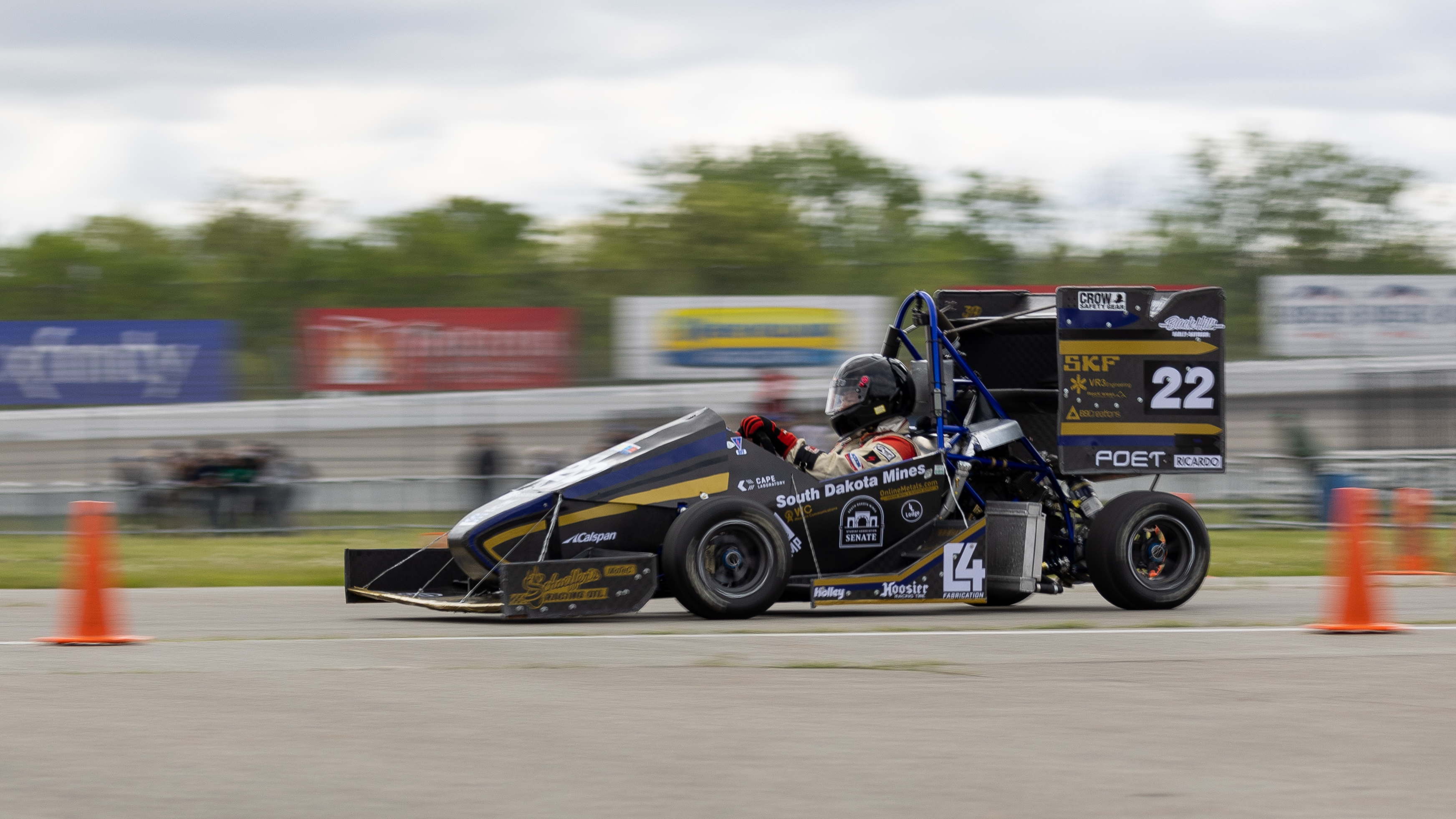
The Formula Hardrocker Racing team designs, builds, and competes with a formula-style autocross vehicle. The team competes in four dynamic events: autocross, endurance, skidpad, and acceleration. They also are judged in three static events: business presentation, cost report, and design tent. The competition is designed to evaluate both the performance of the car as well as the teamwork and leadership skills of the team.
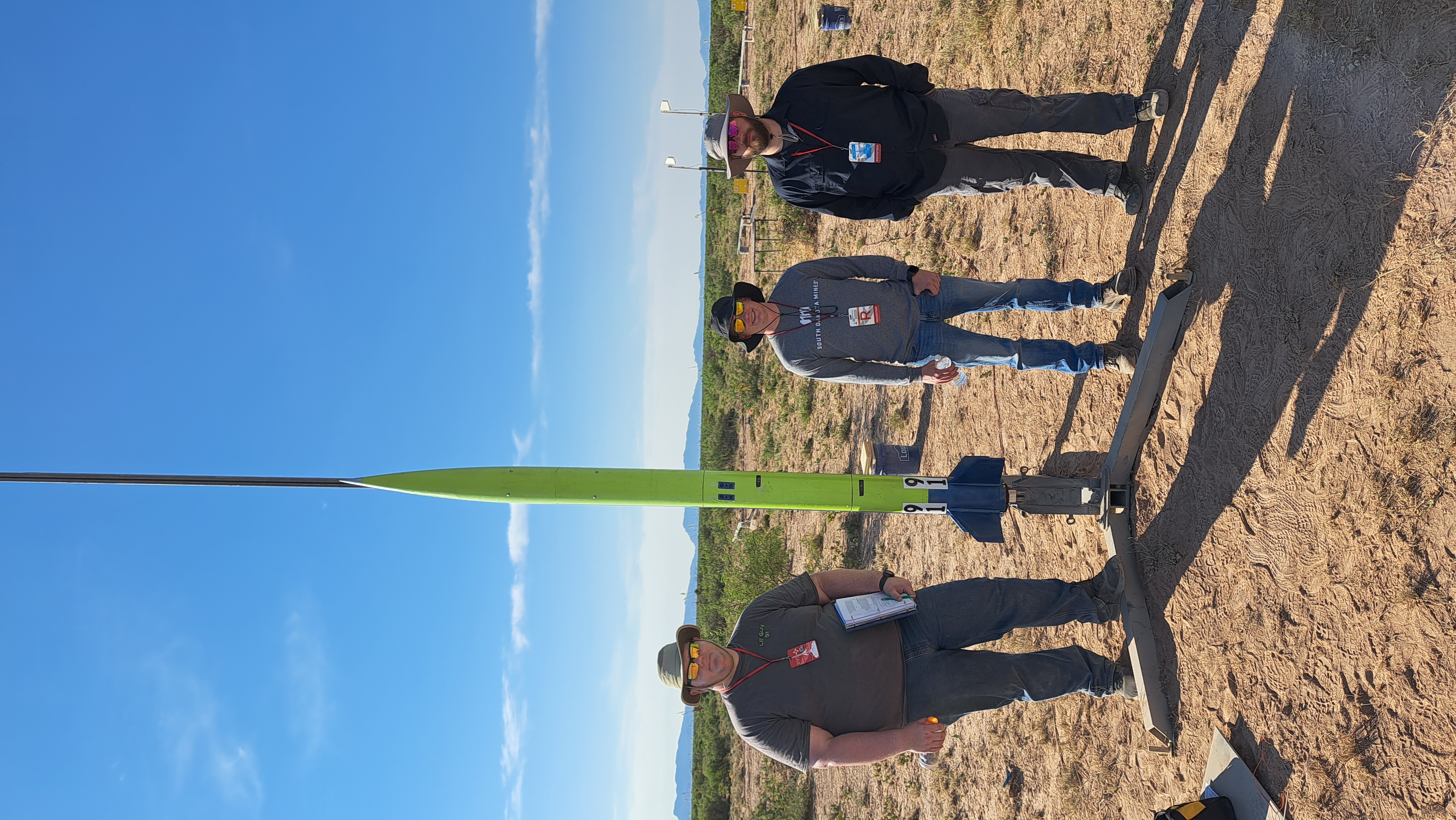
Mines Association of Rocketeers, also known as MARS, competes at the annual Spaceport America Cup. It is one of the largest intercollegiate rocket engineering competitions for student rocketry teams. There, teams launch solid, liquid, and hybrid rockets to target altitudes of 10,000 and 30,000 feet.
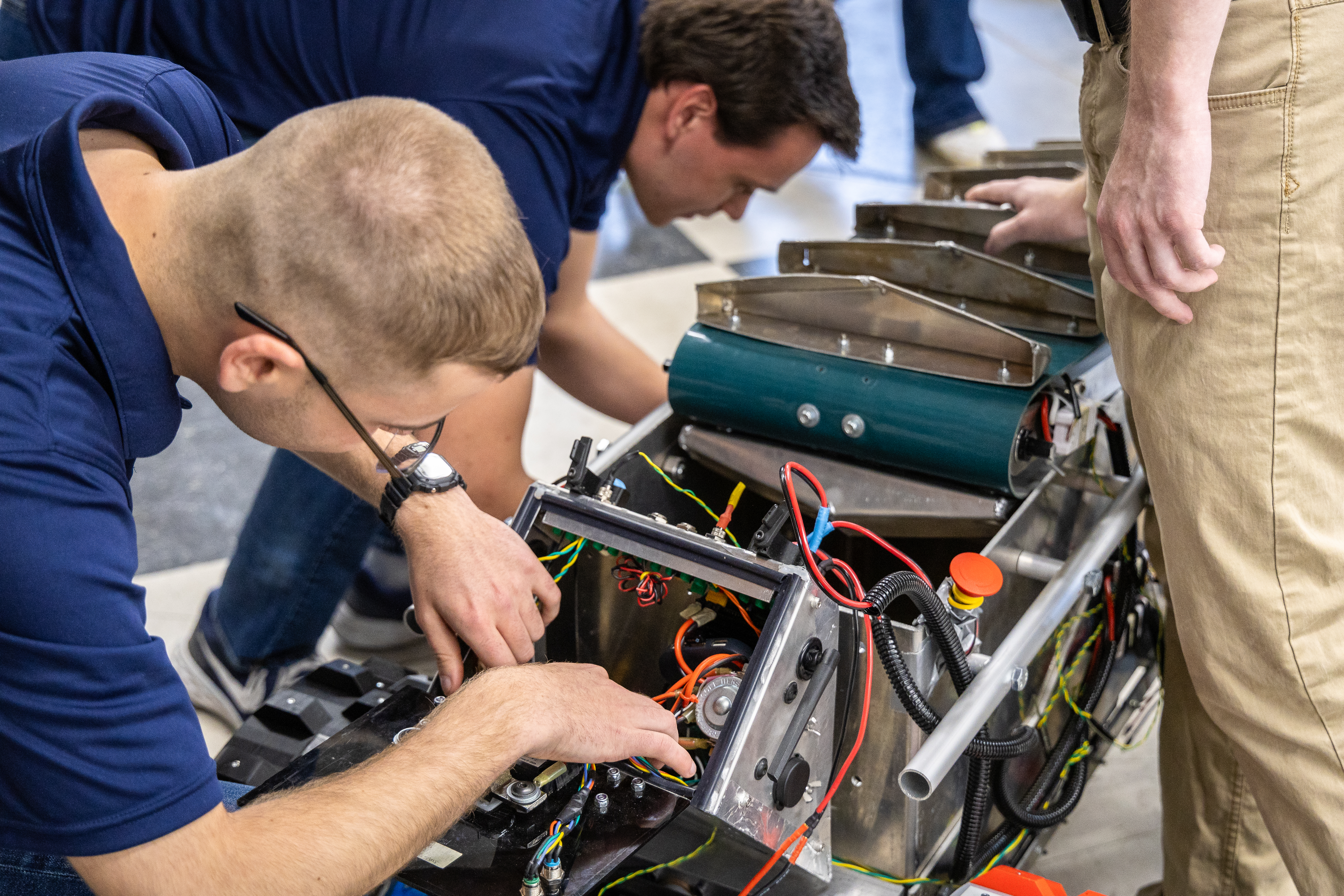
The Moonrockers compete in the Robotic Mining Challenge. The competition entails designing and programming a robot that can make its way through a lunar field containing various obstacles such as rocks and craters, as well as a surface layer of dusty limestone. The robot needs to mine down and collect material below the surface layer, before returning across the field and depositing the material it has collected. The goal is to obtain as much material as possible during the run and additional points are awarded for autonomous operations.
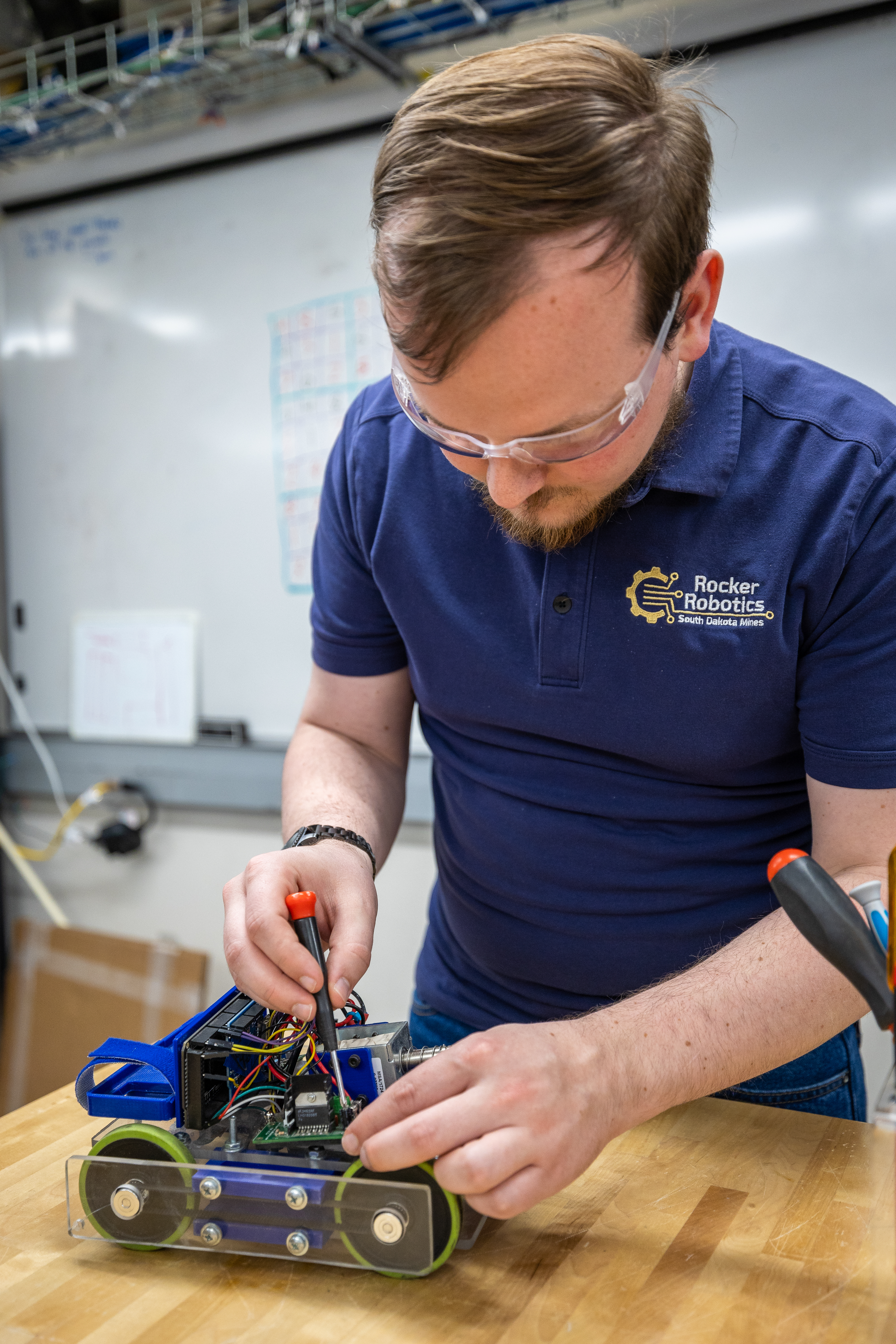
Every year the competition the Rocker Robotics team attends changes, depending on what the members vote on at the beginning of each year. The competitions are mainly for land-based vehicles with wheels or treads. The team has competed in ASME robotics challenges, the National Robotics Challenge, and the Intelligent Ground Vehicle Competition in past years.

The South Dakota Mines Steel Bridge Team designs and fabricates a scale steel bridge to compete in the American Institute of Steel Construction Student Steel Bridge Competition. Each year the exact specification for the bridge changes but it is generally required to be around 24 feet long, must be able to carry 2,500 lbs of steel, and is only allowed to deflect 3 inches or less. As a part of their competition, the bridge must be broken into sections that can fit into a 3'-6" by 6" by 4" box. The team is judged on how fast the bridge can be built at competition, the amount the bridge deflects, the weight of the bridge, and aesthetics.
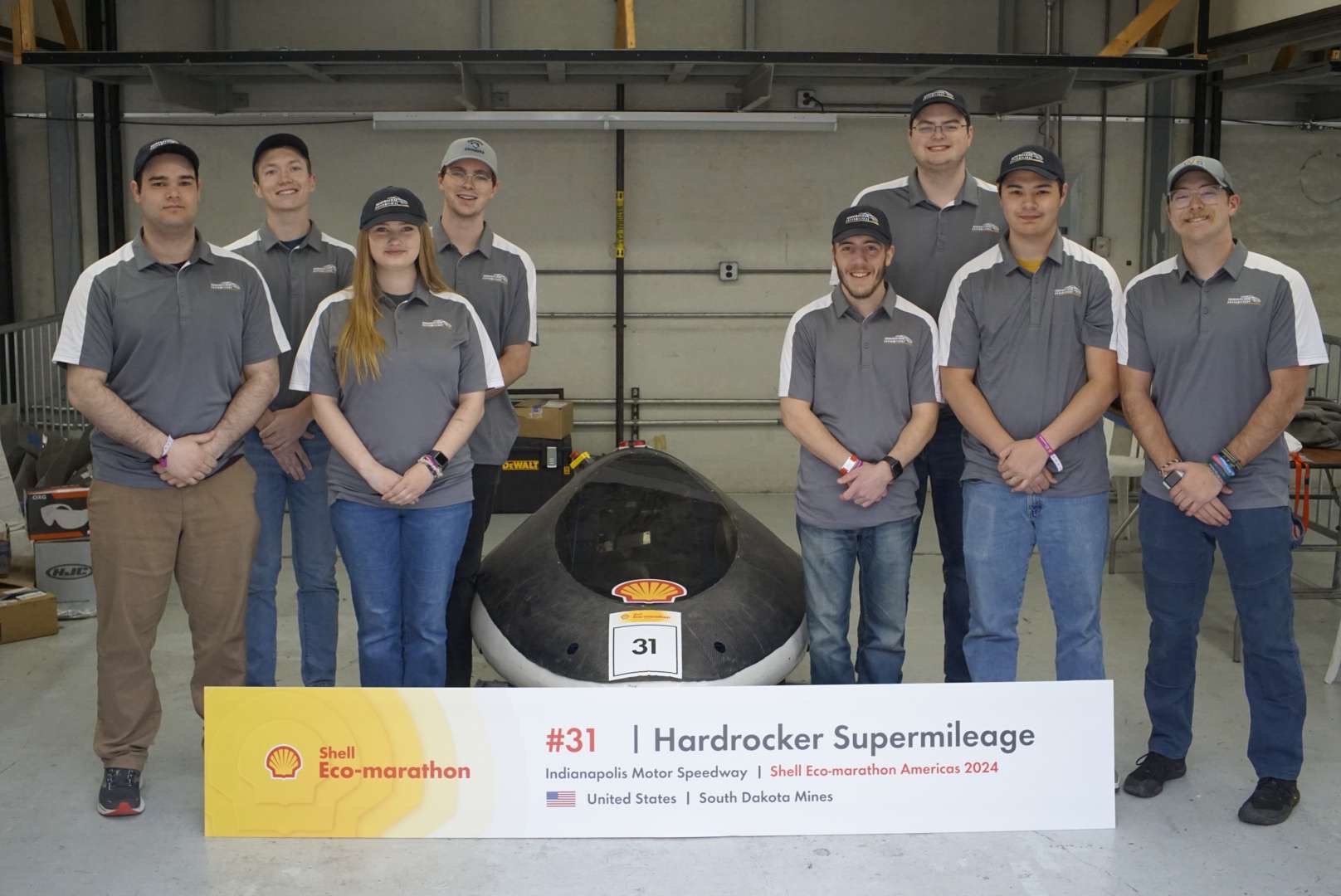
The goal of Supermileage is to create a vehicle that is as fuel-efficient as possible. At competition each vehicle gets a limited amount of fuel, does a set number of laps around a track, and at the end of the run, the amount of fuel left over is used to determine the miles-per-gallon that each vehicle achieved.
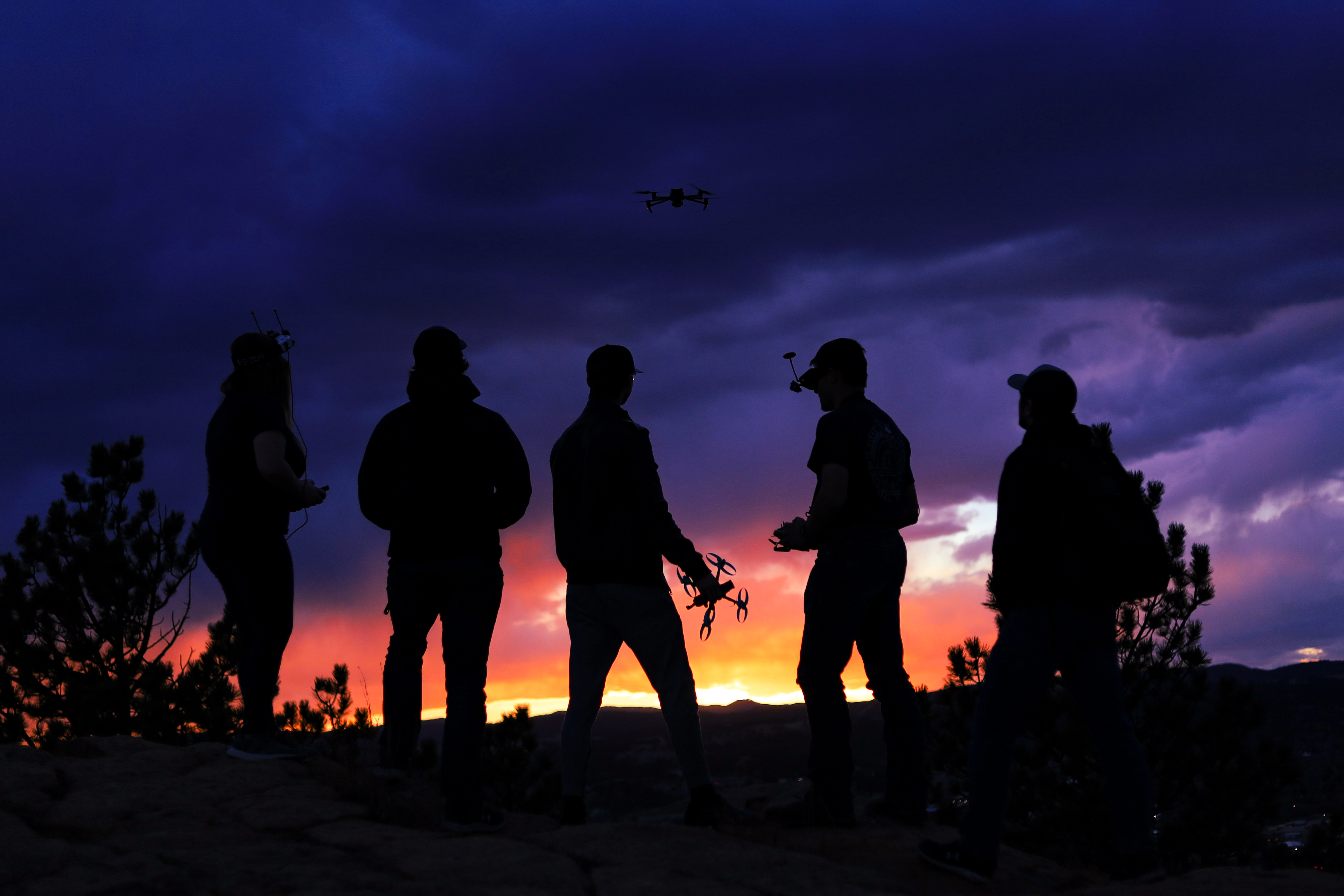 The Unmanned Aerial Systems, or UAS, team competes in the Student Unmanned Aerial
Systems (SUAS) competition. There, teams compete to achieve the best time in a delivery
drone-style competition. They are given the target identifiers and must correctly
determine their locations and safely release a payload to land within the predetermined
area.
The Unmanned Aerial Systems, or UAS, team competes in the Student Unmanned Aerial
Systems (SUAS) competition. There, teams compete to achieve the best time in a delivery
drone-style competition. They are given the target identifiers and must correctly
determine their locations and safely release a payload to land within the predetermined
area.
CAMP Facilities
Personnel
Ryan Koontz, Manufacturing Specialist
Office: CM 208
Phone: (605) 394-6885
Email: Ryan.Koontz@sdsmt.edu
Ryan’s HIGH5 Strengths: Optimist, Brainstormer, Thinker, Deliverer, Believer
Ryan holds a B.S., M.S., and Ph.D. in Mechanical Engineering from South Dakota School of Mines & Technology. Ryan completed his B.S. degree in 1998 and M.S in 2001. His master’s thesis was a study of spark-induced disturbance in a supersonic flow. After his master's degree, he stayed on as an instructor for the mechanical engineering department until the position of Manufacturing Specialist opened in 2002. As the Integrated Manufacturing Specialist for CAMP, Ryan assists students, faculty, and staff with design and manufacturing of parts for use in CAMP sponsored projects. In 2017 he completed his doctoral degree in Mechanical Engineering, where he studied the relationship between how students complete engineering design problems and their emotional intelligence. In addition to applying this research to educate design engineers, he also acts as producibility engineer for all senior design projects and other student projects which involve the use of CAMP’s advanced manufacturing lab or CAT lab.
Amber Kraft, Coordinator
Office: CM 209
Phone: (605) 394-2500
Email: Amber.Kraft@sdsmt.edu
Amber’s HIGH5 Strengths: Empathizer, Believer, Strategist, Philomath, Thinker
Amber holds a B.S. in Agriculture Science from South Dakota State University. Amber has a background in administration and customer service in the agriculture, heavy equipment, and construction industries. She is known for her excellent organizational and customer service skills and ensures CAMP teams have what they need to succeed. Amber provides support to our teams through their project design, creation, and implementation and coordinates all team purchases and travel. She manages our student staff and facility operations and is the central point of contact for all CAMP inquiries. Amber works with our students directly, coaching them to develop their skills and function effectively.



